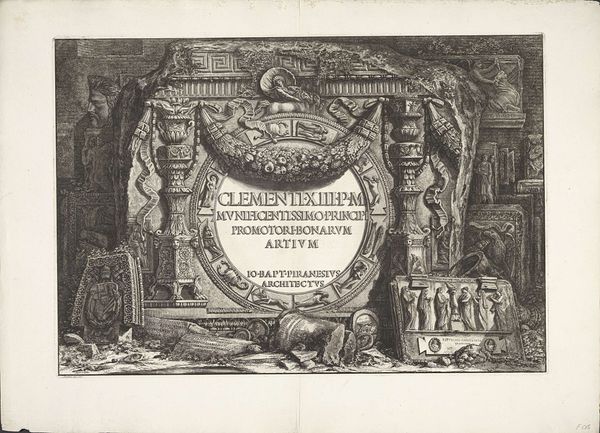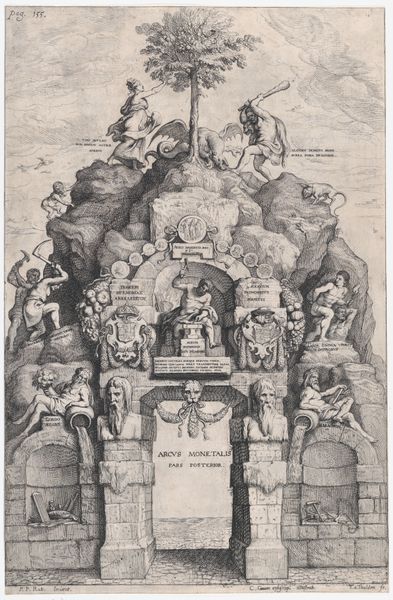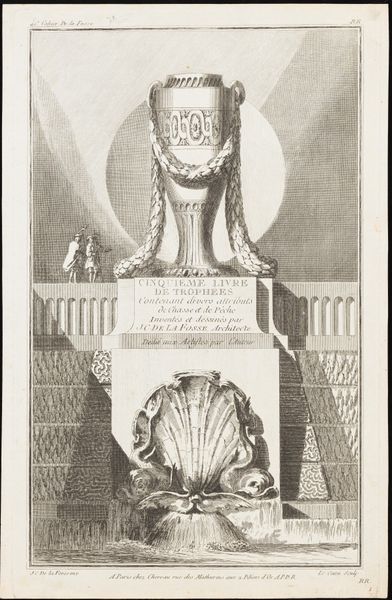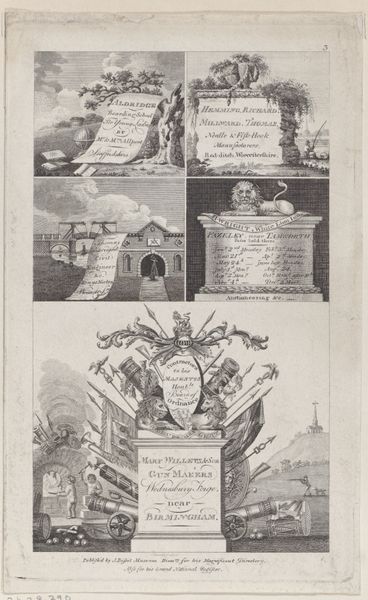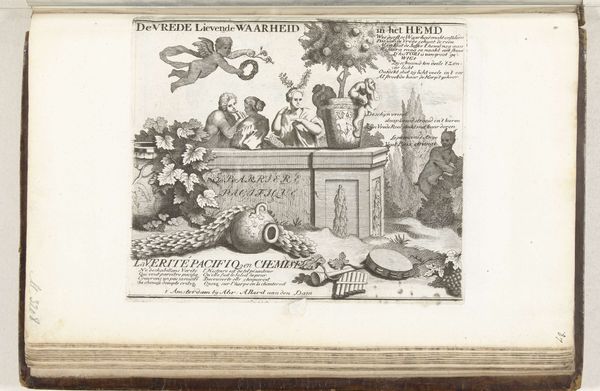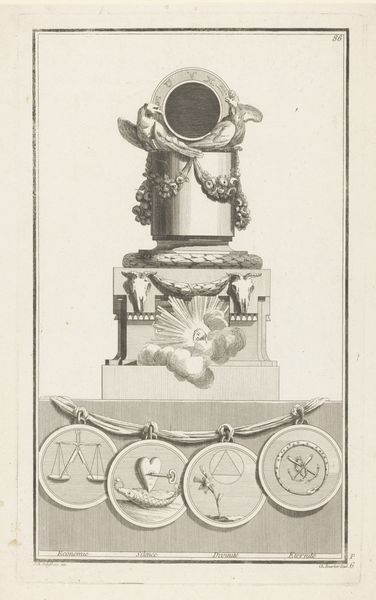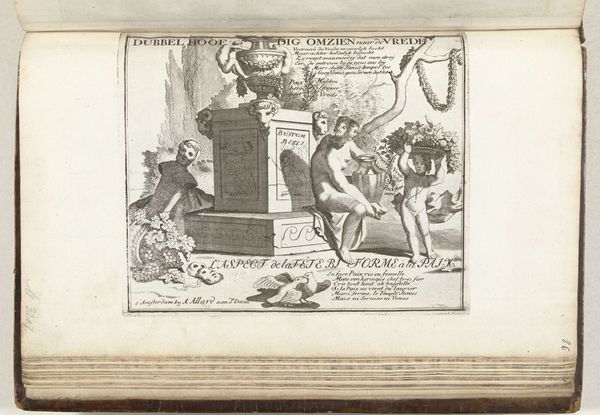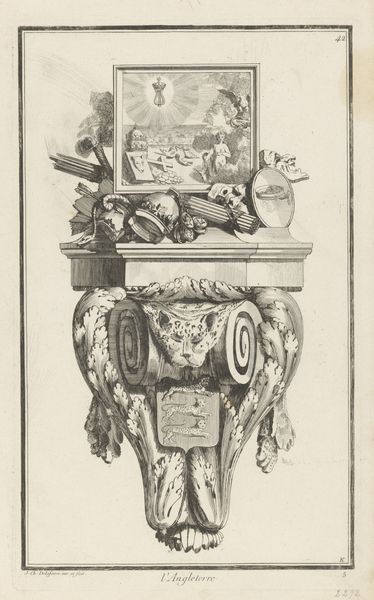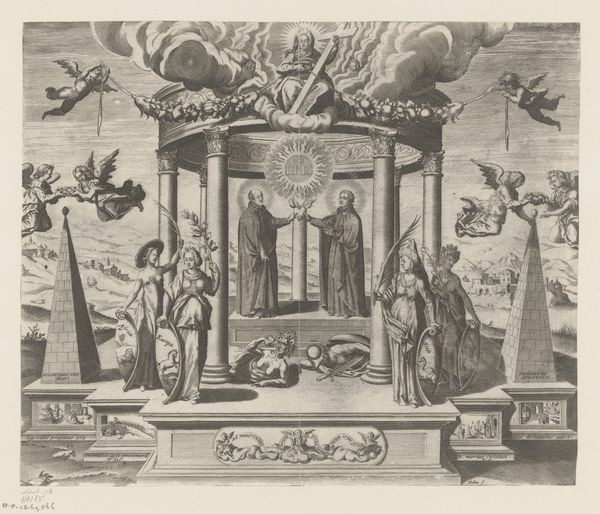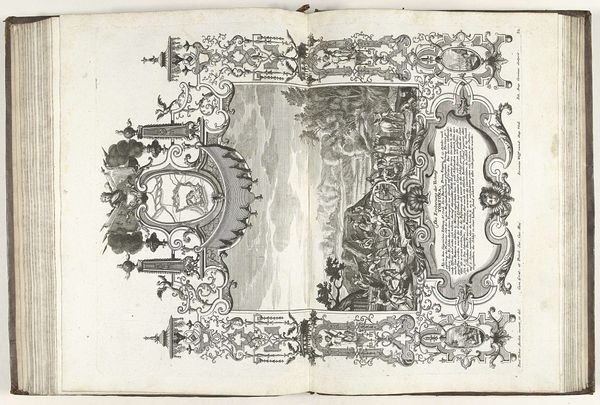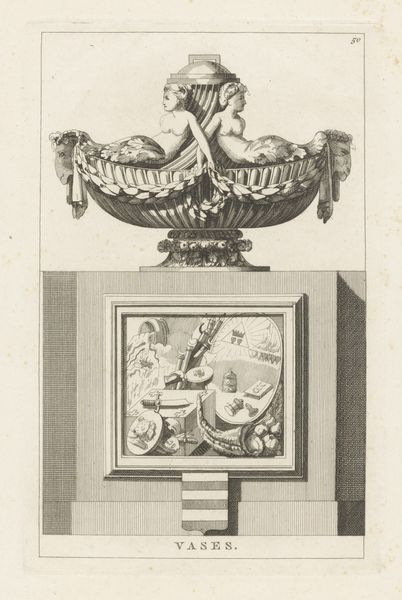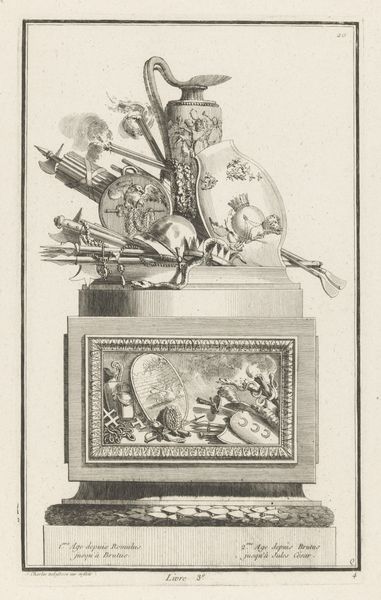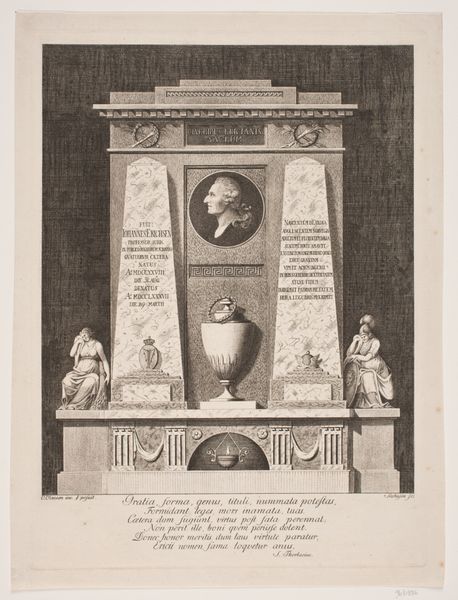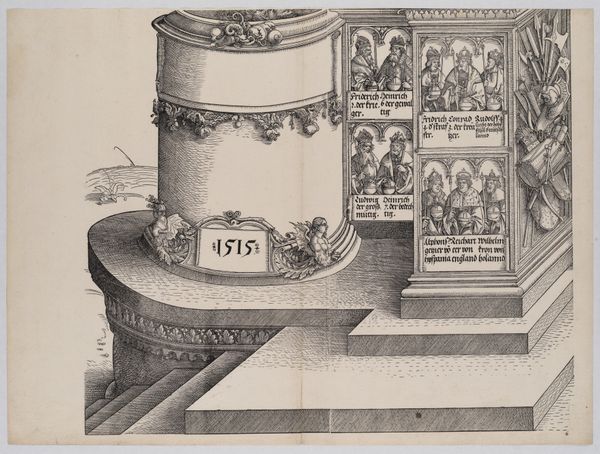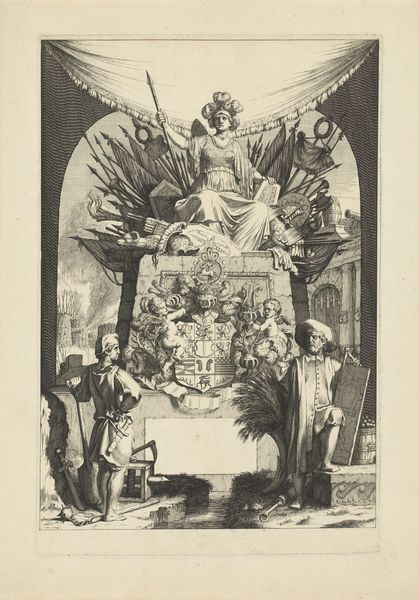
The Roman antiquities, t. 2, Plate XIV. Inscriptions and fragments of the burial chambers of the Family Arrunzia (figures carved from Barbault). 1756
0:00
0:00
drawing, etching, engraving
#
drawing
#
etching
#
romanesque
#
roman-mythology
#
ancient-mediterranean
#
mythology
#
history-painting
#
engraving
Copyright: Public domain
This print was created by Giovanni Battista Piranesi in the 18th century, using etching techniques. It depicts Roman antiquities, specifically inscriptions and fragments from burial chambers. Piranesi was fascinated by the material presence of ancient Rome, and that comes across in his work. Notice the textures and tonal variations he achieves through etching, giving a real sense of the stone’s weight and surface. The printmaking process itself is crucial here. Piranesi wasn’t just documenting artifacts, he was actively reinterpreting them through his craft. He carefully layered lines, and used varied pressure to create a sense of depth and atmosphere. Consider the labor-intensive nature of etching – each line bitten into the metal plate with acid, demanding skill and time. Ultimately, Piranesi elevates these humble fragments through his artistry, prompting us to consider the social context that shaped their creation and subsequent rediscovery. He shows that materials, making, and context are essential to understanding cultural significance.
Comments
No comments
Be the first to comment and join the conversation on the ultimate creative platform.
